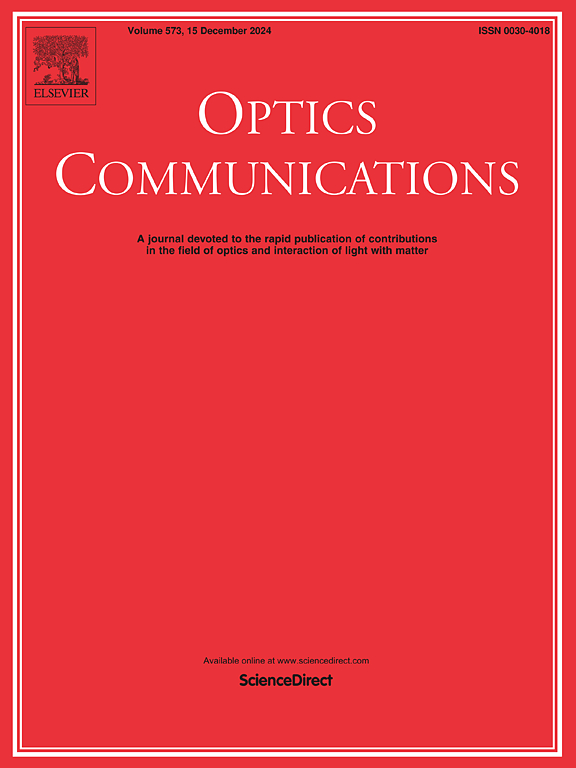采用混合深度学习技术进行失真恢复的多通道光子采样 ADC
IF 2.5
3区 物理与天体物理
Q2 OPTICS
引用次数: 0
摘要
模数转换器(ADC)是现代信息系统中不可或缺的组件,而光子技术已成为克服模数转换器性能瓶颈的大有可为的途径。本文介绍了一种新方法:光子采样 ADC 与神经网络集成,将卷积神经网络 (CNN) 与用于数据恢复的变压器相结合。该系统利用多波长光采样脉冲序列,通过光纤色散在时域中交错。采样信号通过电子 ADC(EADC)在并行通道中进行量化。通过监督训练,混合深度神经网络可提取光子系统缺陷的局部和全局特征,从而恢复失真数据。实验验证展示了这一架构的有效性,以每秒 12 千兆采样率(Gs/s)和 7.13 的有效位数(ENOB)成功地重建了射频(RF)信号。这些结果凸显了拟议架构在多通道光子采样 ADC 中实现高转换精度的潜力。本文章由计算机程序翻译,如有差异,请以英文原文为准。
Multi-channel photonic sampled ADC with hybrid deep-learning for distortion recovery
Analog-to-digital converter (ADC) is indispensable components in modern information systems, and photonic technologies have emerged as promising avenues for overcoming bottlenecks in ADC performance. This paper introduces a novel approach: a photonic sampled ADC integrated with a neural network that combines Convolutional Neural Networks (CNNs) and Transformers for data recovery. The proposed system utilizes a multi-wavelength optical sampling pulse train interleaved in the time domain through fiber dispersion. Sampled signals are quantified in parallel channels by electronic ADC (EADC). Through supervised training, the hybrid deep neural network extracts both local and global features of photonic system defects, enabling the recovery of distorted data. Experimental validation showcases the effectiveness of this architecture, achieving successful reconstruction of radio frequency (RF) signals at a sampling rate of 12 Giga-samples per second (Gs/s) with an effective number of bits (ENOB) of 7.13. The results underscore the potential of the proposed architecture in achieving high conversion accuracy in multi-channel photonic sampled ADCs.
求助全文
通过发布文献求助,成功后即可免费获取论文全文。
去求助
来源期刊

Optics Communications
物理-光学
CiteScore
5.10
自引率
8.30%
发文量
681
审稿时长
38 days
期刊介绍:
Optics Communications invites original and timely contributions containing new results in various fields of optics and photonics. The journal considers theoretical and experimental research in areas ranging from the fundamental properties of light to technological applications. Topics covered include classical and quantum optics, optical physics and light-matter interactions, lasers, imaging, guided-wave optics and optical information processing. Manuscripts should offer clear evidence of novelty and significance. Papers concentrating on mathematical and computational issues, with limited connection to optics, are not suitable for publication in the Journal. Similarly, small technical advances, or papers concerned only with engineering applications or issues of materials science fall outside the journal scope.
 求助内容:
求助内容: 应助结果提醒方式:
应助结果提醒方式:


